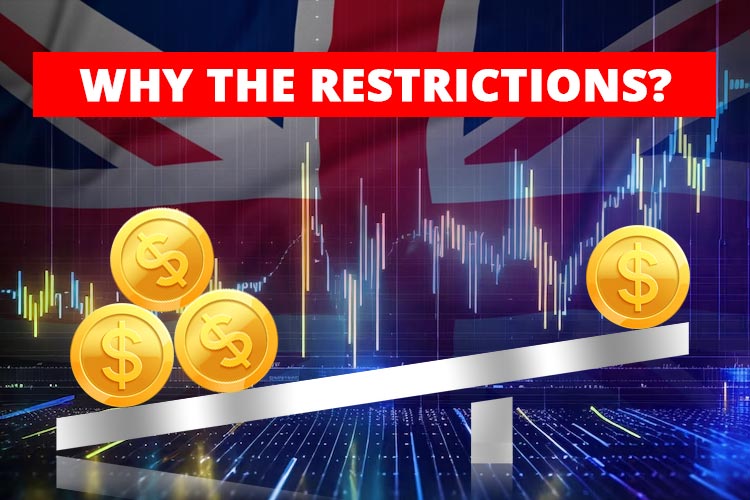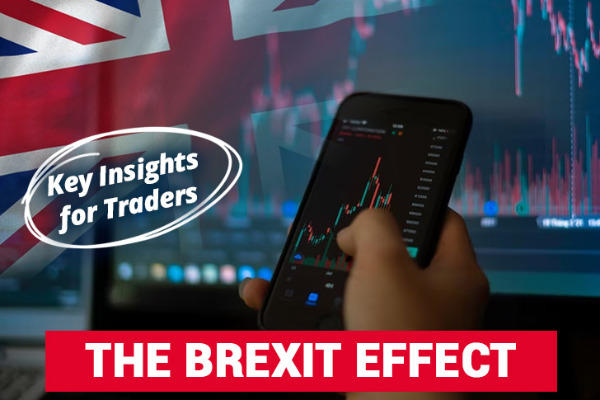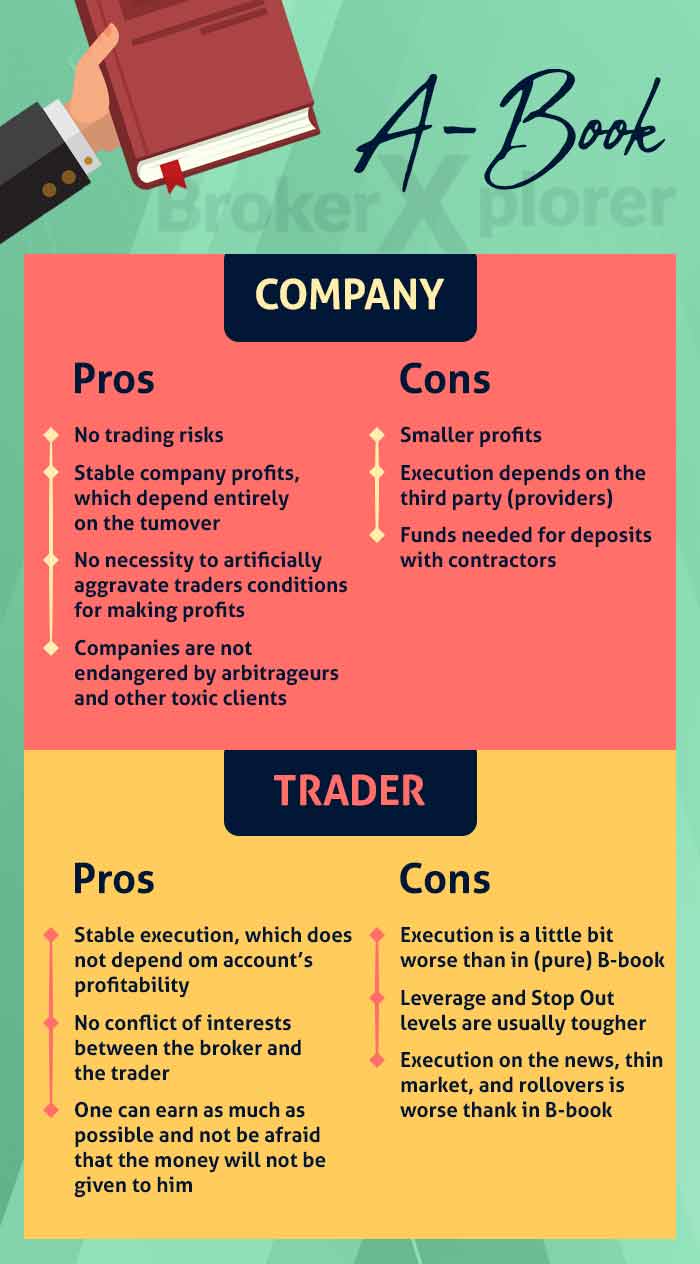Following FCA regulations, leverage for UK traders is restricted, ranging from 30:1 to 2:1 based on the type of asset. Read more to find the details.

In the trading world, leverage and margin are closely linked to how traders or investors handle risks. These factors directly affect how much risk a trader takes during trading.
Because these two things are so important, the United Kingdom set limits on leverage as imposed by its regulatory body, the Financial Conduct Authority (FCA). In this article, we'll talk more about the FCA's rules for leverage and margin in the UK, how these limits impact how traders manage their trades, and some tips for UK traders to trade at their best within these rules.
Leverage Restrictions in the UK
Leverage is a practice where traders/investors borrow funds from their brokers to take larger positions than they could with their own money alone. This involves depositing cash collateral in a brokerage account, often referred to as a margin.
However, leveraging comes with significant risks, as it can magnify potential losses and lead to the depletion of a trading account, even with just one unfavorable trade.
In 2019, the Financial Conduct Authority (FCA) made a significant announcement indicating the transformation of temporary regulations into permanent ones. These rules were designed to control the sale, marketing, and distribution of Contracts for Difference (CFDs) and CFD-like options to retail customers.
As outlined in the FCA's policy statement PS19/18, which focuses on limiting contracts for different products sold to retail clients, the regulator mandates that all brokers operating in the UK must restrict leverage within the range of 30:1 to 2:1. The specific leverage limits proposed are contingent upon the volatility of the underlying asset.
| Asset type | 📈Maximum leverage | 📉Minimum ratio of cash collateral |
| Major FX pairs and certain government bonds | 30:1 | 3.33% |
| Major stock market indices, minor currency pairs, and gold | 20:1 | 5% |
| Minor indices and commodities (exclude gold) | 10:1 | 10% |
| Single stock equities and other assets | 5:1 | 20% |
| Cryptocurrencies | 2:1 | 50% |
UK brokers reserve the right to impose more stringent leverage limits than those stipulated by the FCA.
Margin Restrictions in the UK
Under the FCA, there is a specified minimum capital requirement, known as minimum margin, that traders must maintain in their accounts to sustain an open leveraged position. This minimum margin is determined as a percentage of the total exposure the Contract for Difference (CFD) provides for the underlying asset.
The minimum margin ranges from 3.33% to 50% depending on the assets involved.
- Major FX pairs and certain government bonds: 3.33%.
- Major stock market indices, minor currency pairs, and gold: 5%.
- Minor indices and commodities (excluding gold): 10%.
- Single stock equities and other assets: 20%.
- Cryptocurrencies: 50%.
Other FCA Requirements for CFD Brokers
For Contracts for Difference (CFDs) and similar options sold to retail clients, brokers must adhere to the following regulations:
- Close a customer's position when their funds decline to 50% of the required margin to sustain their active positions in their CFD account.
- Implement safeguards to ensure that a client cannot incur losses exceeding the total funds in their CFD account. This is called negative balance protection.
- Cease offering both financial and non-financial incentives aimed at encouraging trading.
- Provide a standardized risk warning, obliging firms to inform potential customers about the percentage of retail client accounts that experience losses.
Why Restrictions Are Important
Many traders recognize leverage as a way to increase profit with limited funds. So why is it good to put a limit on it? After all, other countries don't impose on leverage and margin so it's common to find brokers offering high leverage like 1:200, 1:500, or even more.
Well, think of leverage as a two-sided blade. With high leverage, traders can open more positions using a small margin. However, this increased leverage can also lead to overtrading and significantly larger losses.
FCA's policy to limit leverage aims to restrict retail traders' exposure to unpredictable and risky markets like forex.
Leverage limits act as a protective measure for retail traders, ensuring that their cash collateral remains secure even in the face of market fluctuations. They safeguard the interests of traders by mitigating the potential for substantial losses.
In addition, the primary goal behind these regulations is to address misconduct by UK and EEA firms offering CFDs to retail consumers and to prevent the sale of high-risk CFDs and similar products that may harm retail traders/investors.
Do the Restrictions Affect Trading Plan?
Yes, they do. The impacts of leverage and margin restrictions in the UK are mostly seen in the way traders set their strategy and risk management.
Adoption of Reduced Position/Lot Sizes
Employing lower leverage signifies that the margin required to initiate a position of equivalent size will experience an increase. Consequently, traders in the UK tend to diminish the size of their positions in contrast to their counterparts in countries without leverage restrictions.
To illustrate, trading in the Philippines can utilize leverage of 1:500, opening positions in major FX with 1 lot ($100,000), necessitating a mere $200 as the margin. Conversely, trading in UK adhering to a 1:30 leverage, initiating a 1-lot position in major FX demands a margin of approximately $3,333.
Pivoting Towards or Diversifying Into Major FX
With a capped leverage of 2:1, cryptocurrency traders are likely to shift their focus or diversify more significantly into major FX. Another viable avenue, if steering away from major pairs, involves redirecting attention to gold where leverage can extend up to 20:1.
This strategic adjustment is undertaken to enhance the efficiency of capital utilization for optimal trading outcomes. The discerning trader in the UK recognizes the importance of adapting to these constraints and exploring alternative avenues to sustain and maximize their trading prowess.
Tips for UK Traders
- Understand the Regulations: Ensure you thoroughly understand the FCA regulations regarding leverage and margin limits. Familiarize yourself with the specific ratios applicable to different asset classes to make informed trading decisions.
- Utilize Demo Accounts: Practice with demo accounts to gain hands-on experience without risking real capital. This allows you to test strategies and familiarize yourself with the impact of leverage and margin in a controlled environment.
- Choose Brokers Wisely: Opt for brokers that adhere to FCA regulations and prioritize client protection. Ensure that your chosen broker provides negative balance protection and follows stringent guidelines.
- Adapt Your Trading Strategy: Modify your trading strategy to align with the new leverage limits. This may involve adjusting position sizes, and timeframes, or incorporating different trading instruments that are more compatible with the imposed ratios. For instance, focus on major FX pairs, major stock market indices, minor FX pairs, and gold using the H1 or H4 time frame.
- Risk Management is Key: Develop a robust risk management strategy. Understand the potential risks associated with leverage and margin trading, and only use these tools when necessary and within prescribed limits. For example, use 1% risk per trade. With a $5,000 capital, you'd be risking $50 in each transaction. If the stop-loss is set at 50 pips, your trade volume would be 0.1 lot.
Final Words
In conclusion, the Financial Conduct Authority (FCA) plays a crucial role in UK forex trading safeguarding retail traders by setting limits on leverage and margin. The FCA's leverage restrictions range from 30:1 to 2:1 based on asset type, impact trading strategies, and risk management for UK traders.
While leverage and margin can be powerful tools in trading, understanding the limits, managing risks, and adapting the trading strategy are key elements in navigating the dynamic landscape of leveraged trading in the UK.
The UK's forex trading industry is one of (if not) the biggest markets for traders and investors. As such, leverage limits are not the only concerning matter that the players need to pay attention to. Did you know that social media also plays a crucial role in the UK financial market?

 Dedicated FREE FOREX VPS
Dedicated FREE FOREX VPS Free FOREX Virtual Private Server
Free FOREX Virtual Private Server MT4 Demo Contest, Get $500
MT4 Demo Contest, Get $500 Sign Up for an Account, Claim 60% Deposit Bonus
Sign Up for an Account, Claim 60% Deposit Bonus Free MT4/MT5 VPS 2024
Free MT4/MT5 VPS 2024 Send E-mail and Get Free Merchandise
Send E-mail and Get Free Merchandise $1K Refer a Friend Bonus for Pepperstone Pro clients
$1K Refer a Friend Bonus for Pepperstone Pro clients Maximize Your Earnings with 100% Deposit bonus
Maximize Your Earnings with 100% Deposit bonus Trade to Win, $5,000 Monthly Demo Contest
Trade to Win, $5,000 Monthly Demo Contest Claim 30% + 15% Deposit Bonus from LiteFinance
Claim 30% + 15% Deposit Bonus from LiteFinance








